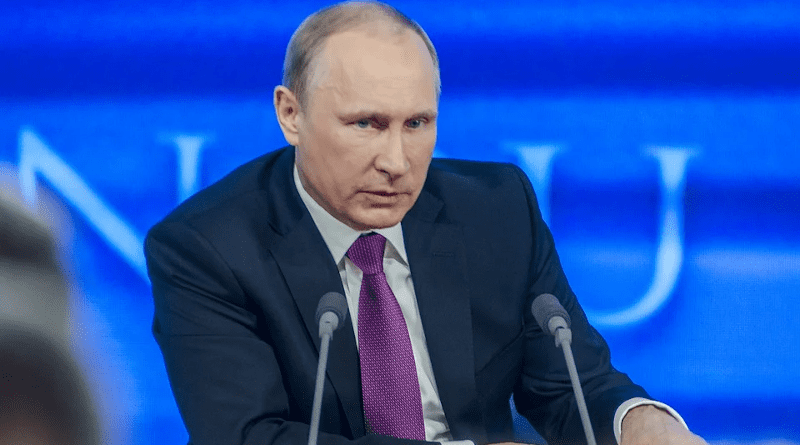Judging Putin – OpEd
It’s time for Russian president Vladimir Putin to get serious and shape up his own image.
By William Dunkerley
Fifty years ago, the Cuban Missile Crisis was the buzz-topic in America about Russia. Today, it’s the Pussy Riot, a group of exhibitionists who call themselves musicians fighting oppression. In the 1960s Americans fretted over Khrushchev wanting to “bury” them. Now Americans don’t consider Russia a threat to themselves; they’re up in arms (figuratively) over Russia’s threat to its own democracy.
What was central in the 60s isn’t on the radar screen today. But, mention Khrushchev to Americans who were alive in the 60s, and you just may hear him characterized by his “we will bury you” speech.
I did a name association game with some fellow Americans. I stated the name of a former president, and asked to hear the first words that came to mind. So, “Hoover” yielded, for instance, “Great Depression.” Roosevelt, “recovery.” Nixon, “crook.”
The word associations seem to encapsulate history’s judgment of those leaders. The characterizations of the leaders represent a narrative theme. The stories about their presidencies are woven around it. Historians take a deeper look. For others, it’s the theme that prevails and defines.
It’s said newspapers are the first draft of history. That’s bad news for the legacy of Vladimir Putin. The international media mash-up on his leadership-to-date is that he’s a ruthless anti-democratic dictator who won’t go away. For the Western public, that’s the established theme. And, that’s the record that future historians will find when researching Putin.
The most remarkable thing about this negative theme is that it is not fact based. Some observers imagine that a conspiracy of world media drives the bad coverage. But there’s no real evidence of that.
The Alexander Litvinenko case exemplifies the real process through which Putin is regularly slimed internationally. My book, The Phony Litvinenko Murder (OmnicomPress.com/plm), explains this process in detail. In a nutshell, though, this is a case of a “managed story.” The entire news story about Putin being behind the murder of Litvinenko was fabricated by a non-state arch enemy of Putin’s. And then it was skillfully foisted upon an unsuspecting press, appreciative of having an enormously attention getting story handed to them ready-to-use.
My study of the managed story approach goes back to the dawn of the Putin era. I’ve carefully analyzed how it has been used to defame Russia and its leader. That gave me the insight to see how the process can be defeated. I know exactly how it works, what the vulnerabilities are, and how to defeat it.
That leaves me amazed to see that Putin has employed virtually no effective countermeasures. It’s hard to imagine why not. Maybe it’s out of ignorance of what to do. Or perhaps it’s a result of arrogance over the need to respond at all.
The consequences are dire. Putin’s failure to protect his own image is a disservice to his own country. It isn’t just Putin’s historical legacy that’s at stake. His neglect has resulted in diplomatic fractures, impeded Russia’s quest to regain its place in the world, and has been a burden to international commerce and integration.
Recently, Putin’s arch enemies have even found success in turning negative international stories inward. That’s been responsible for emboldening agitators and fomenting dissatisfaction in the heart of Russia. Putin’s popularity has slipped. The negative stories are gaining ground.
Putin’s place in history is being shaped right now. The first draft continues to be written by enemies. His response has been to stage stunts like dressing up as a Siberian crane, and sponsoring projects to disseminate puffery. It’s high time for him to get serious about protecting his own image, and to start becoming an effective steward of his country’s reputation.
William Dunkerley is a media business analyst and consultant based in New Britain, CT, USA. He works extensively with media organizations in Russia and other post-communist countries, and has advised government leaders on strategies for building press freedom and a healthy media sector. He is a Senior Fellow at the American University in Moscow.

